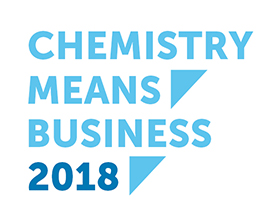Chemistry Means Business
As some of the UK’s pioneering talent prepares to gather in London for our emerging technology awards during the Chemistry Means Business event, our director of science and communities, Jo Reynolds, looks at the threat posed by uncertainties surrounding the Brexit deal to this pipeline of new ideas.
To say that science, innovation and Europe are intertwined would be a massive understatement. The figures speak for themselves:
- In the UK, chemistry departments benefit strongly from EU research funding – both the proportion (23%) and the absolute amount of funding received by them (£55 million) is amongst the highest of all subjects in the UK.
- Among UK universities, one in five staff working in chemistry are non-UK EU nationals – compared to 12% of university staff overall.
- Through Horizon 2020 alone, the UK is involved in 5,622 projects with 133 countries.
- Around 32% of these projects involve UK companies, ranging from chemistry giants such as Johnson Matthey to up-and-coming SMEs like Smart Separations and Econic Technologies.
This collaborative culture, with the sharing of funds, talent and insight, is the foundation of so much of the invention, discovery and creativity flowing from our chemical and pharma industries.
And this isn’t just science for science’s sake. We call the event "Chemistry Means Business" for good reason. Our sector provides jobs and incomes, as well as advances in many fields that benefit the lives of literally everyone in the country, if not the world.
There is a clearly a lot at stake. That is why we’re so concerned about post-Brexit prospects.
While there’s research and development happening in every quarter of the chemical and pharma worlds, there’s no denying the importance of smaller, agile firms that are pursuing particular niches.
Yet, it’s these companies – with maybe only a handful of staff – that face the biggest challenges post-Brexit. They will be least able to overcome the new obstacles that could be put in their way, despite being the very lifeblood of innovation elsewhere in the sector.
There may be issues with the movement of people and data-sharing. However, access to funding is probably our biggest concern. We’re calling on the government to take every possible measure to prevent these problems arising in the first place by securing a deal that works for the UK scientific community as a whole; and if that’s not achievable then to put in place mitigation measures that will protect and enhance our considerable strengths in this area.
For our part, we will continue to champion the work of chemical and pharma companies; especially SMEs. That’s something we do directly with the government, as well as other influencers and stakeholders and we’ll keep at that until we have some clarity on what the future holds. More practically, we can offer SMEs support through our dedicated EnterprisePlus service.
We do face challenges as a sector and we need to tackle them. I’m sure we’ll all be mindful of that at Chemistry Means Business next week. But there’s also a lot to celebrate and it’s important to take the time for that too. If nothing else, telling the stories of real businesses and innovations is one of the best ways to get our collective message across.
Further information
Case studies
We set out to understand how EU funding programmes have helped chemists in our community to advance the chemical sciences for the benefit of humanity. We interviewed researchers and entrepreneurs from across the UK and from the EU about their experiences of EU Framework Programme funding.
Read some of those case studies and the key lessons we can take from them.
Our asks of EU and UK governments
With the UK currently involved in more than 5,622 research projects through Horizon2020, The Royal Society of Chemistry has published a three point plan it says is crucial to safeguard the sector’s leading position.
1. The UK must continue to work in an uninterrupted full partnership with the European Chemicals Agency (ECHA) from March 2019 onwards, in order to:
- share data that ensures good decisions on product safety,
- achieve a ‘common rulebook’, continue with frictionless multiple cross-border transits for chemicals and goods, and
- avoid unintentional regulatory divergences.
2. There must be easy movement of scientists between the UK and the EEA. This includes students and the dependents of those who move. The current non-EEA immigration system is not fit for purpose as a replacement for freedom of movement when the UK leaves the EU.
3. The UK needs to secure associated country status in the Horizon Europe programme for science and innovation – and that programme should continue to focus on excellent research.
Social media pack
Support Chemistry Means Business on social media, using our Twitter, Facebook and LinkedIn templates.
Press office
- Tel:
- +44 (0) 20 7440 3351
- Email:
- Send us an email

